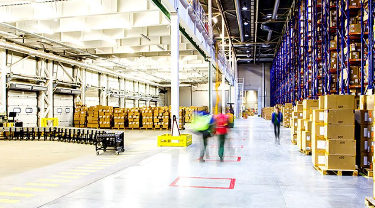
Germany: Road to possibilities for Canadians
With 82.4 million people, Germany is the largest country in the European Union (EU). It ranks in the top 20 countries in terms of global gross domestic product per capita, making it one of the richest countries in the world. For Canadian exporters, doing business in Germany provides access not only to this wealthy single market, but to the largest world-wide trade bloc.
Thanks to the Canada-European Union Comprehensive Economic and Trade Agreement (CETA), it’s never been easier to do business in Europe. CETA has effectively reduced or eliminated tariffs altogether, and significantly eased non-tariff barriers as well. Strong governance practices and low corruption rates make Germany one of the best places in which to do business.
In terms of ease of doing business, the World Bank ranks it 24th of the 190 countries evaluated. Read on to discover key market highlights provided by our expert panellists during the recent webinar, Entering the German market with CETA.

Top 10 takeaways
1. Ambitious renewable energy agenda
Renewable energy replaced coal as Germany’s main power source last year. The target is to have at least 80% of their energy needs generated through renewable sources by 2050. This booming sector is open to investment, so if you’re into solar, wind, bio mass, or hydroelectric—even on a small scale—you’ll likely find traction there. Similarly, clean water and other environmental cleantech solutions will fuel lots of interest in Germany.
2. Auto opportunity
There’ll be disruption in the road ahead for Germany’s auto sector as they move toward the production of electrical vehicles. While challenging, the recent EU emissions standards provide opportunities for new suppliers to enter the market. Canadian companies that can meet the demands related to electric vehicle components should get in the fast lane.
3. An exporting nation
Exports represent about 45% of the German economy. With 25% of its industry devoted to being exported—a high percentage compared to other developed markets—Germany is more sensitive to external economic shocks. Current geopolitical and economic factors weigh negatively on their economic outlook, including a potential trade war with the United States regarding auto tariffs, economic weaknesses among some of their key trade partners and the uncertainty surrounding Brexit.
4. Market shortcut
If you’re looking to do business in Germany, then bookmark the Trade Commissioner Service (TCS). Of the 1,000-plus trade experts they have working around the world, 18 are based in Berlin, Düsseldorf and Munich. They service 800 Canadian companies currently exporting to Germany, as well as 150 Canadian companies with invested interests. They can provide you with qualified in-market connections to essential service providers, including lawyers, accountants, translators, cultural interpreters, agents, distributors and customs brokers.

5. Going the trade show route
Looking to attend a trade show to check out the German market? Here’s just a few taking place in fall 2019:
- gamescom (gaming)
- REHACARE (self-determined living)
- ANUGA (food and beverages)
- MEDICA (medical sector)
Before planning to exhibit in any trade event:
- Connect with TCS early. They can organize business meetings in advance, plus arrange tours if you want to look at incubators around the cities.
- Apply for CanExport funding to receive up to $75,000 to cover eligible expenses associated with your international market development activities, including participation at trade shows.
6. Top-tier access
Export Development Canada (EDC) provides financing to international companies that are industry leaders with an expansive regional or global footprint. During the lending due diligence process, we develop a deep understanding of their procurement needs. Working through our Business Connection Program, we’re then able to introduce Canadian exporters well- positioned to meet the demands of these global buyers. In Germany, we’ve nurtured relationships with key corporates in the automotive, chemical, advanced technologies, grocery and agri-food sectors. To qualify as a potential supplier, fill out our online connection form.
7. CETA’s boost to Canadian competitiveness
In addition to providing access to more than 500 million consumers in the EU, CETA:
- Eliminates 98% of tariff lines for manufactured products and 92% for agriculture and agri-food products (with more reductions planned throughout the seven-year phase-out period)
- Provides access to government procurement on a level playing field with domestic suppliers
- Enhances protections for intellectual property and investment, as well as provides greater transparency for services
- Reduces technical barriers and discriminatory regulatory requirements
- Clarifies rules of origin, facilitating trade in goods and improving access to global supply chains.

8. Best bet sectors
Canadian goods exports to Germany totalled $4.8 billion in 2018, dominated by these sectors:
- Agriculture and agri-food
- Automotive
- Aerospace
- Cleantech
- Consumer products
- Information and communications technologies
- Life sciences
- Machinery and equipment
- Mining
Consider your options in these fast-growing sectors:
- Machinery repair and installation
- Transport and storage
- Information and communication
- High-tech goods
- Retail and wholesale distribution
9. Food for thought
Germany is the world’s largest importer of agriculture and agri-food products. With Canada owning a meagre 2.7% market share of EU imports in this sector, we need to get growing. One of the emerging opportunities in Germany is their appetite for vegetarian and vegan fare. They’re looking for “free-from” and organic options, as well as superfoods, superfruits and plant-based proteins. Remember, Canadian producers must ensure their products meet the applicable rules of origin to benefit from the preferential tariff treatment provided by CETA.
10. Financing and insurance solutions
Selling internationally comes with its own set of risks, but there are steps you can take to minimize those challenges. Having credit insurance means your receivables are covered, even if your customer’s unwilling or unable to pay. EDC’s Export Guarantee Program provides risk-sharing with your bank, which translates into increased access to financing for you. We can provide financing to your international buyer, which will position you with a competitive edge in Germany and other markets around the world.

















